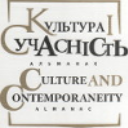РОЛЬ БРИТАНІЇ В КУЛЬТУРНО-ПОЛІТИЧНОМУ ПРОСТОРІ ВІЗАНТІЇ В ЕПОХУ ВИСОКОГО СЕРЕДНЬОВІЧЧЯ
THE ROLE OF BRITAIN IN THE CULTURAL AND POLITICAL SPACE OF BYZANTIUM DURING THE HIGH RENAISSANCE EPOCH
Author(s): Alla SokolovaSubject(s): Cultural history, Political history, 13th to 14th Centuries, 15th Century, Politics and Identity
Published by: Національна академія керівних кадрів культури і мистецтв
Keywords: Byzantine Empire; English identity in Byzantium; dynamics of relations; English Varangians; Crimean peninsula; “New England”;
Summary/Abstract: The role of Britain in the cultural and political space of Byzantium during the High Renaissance epoch The purpose of the article to determine the position of Britain in the cultural and political sphere of the life of Byzantium in the era of the late Middle Ages. The research methodology consists of the application of methods of analysis and synthesis, systematization of facts, comparison, and generalization of research results. Scientific novelty. For the first time, the problems of relations between Byzantium and Britain in the era of the late Middle Ages are investigated, and a hypothesis is put forward about the colonization of a part of the Crimean peninsula by English Varangians over several centuries, cultural and political interaction between the Byzantine Empire and Britain at the turn of the XIV-XV centuries is considered. Conclusions. Byzantium was the center of Christianity and the eastern outpost of Christendom, which stimulated British interest in Byzantium. The conquest of Great Britain by Normandy in 1066 triggers crisis and emigration processes, as a result of which some of the British find refuge in Byzantium. During the same period, the Byzantine army became increasingly dependent on the services of mercenaries. By the end of the XIIth century, the British constituted the main contingent of the foreign mercenary army, personally loyal to the emperor. The British, who were part of the personal guard of the Byzantine emperor, and recreated a colony called "New England" on the territory of the Crimean peninsula, continued to identify themselves as British without losing touch with the culture of their people. The last visit of the Byzantine emperor to London in 1400 did not bring significant political dividends for the empire but promoted cultural exchange between the two countries. In the last decades of the empire's existence, these contacts were fading.
Journal: Культура і сучасність
- Issue Year: 2020
- Issue No: 2
- Page Range: 98-103
- Page Count: 6
- Language: Ukrainian

